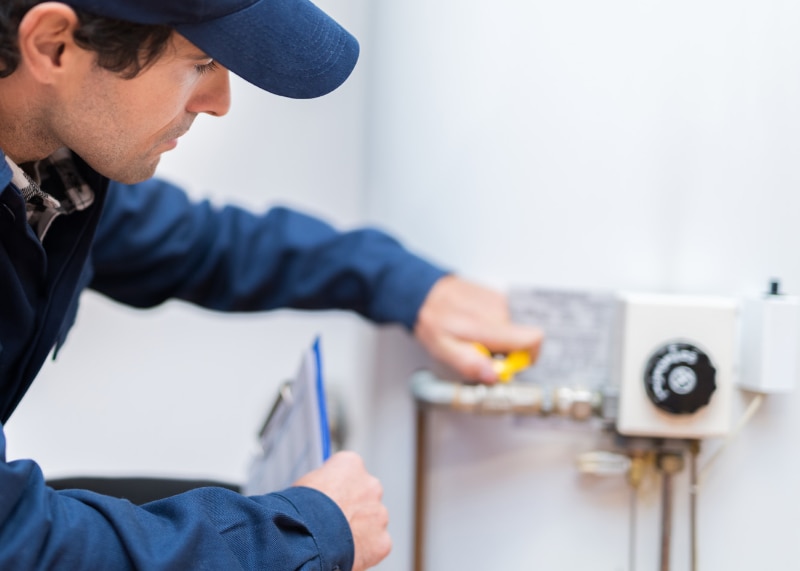Fixing Standard Water Heater Challenges
Fixing Standard Water Heater Challenges
Blog Article
Are you currently trying to find critical information concerning Common Problems with Tank Water Heaters?

Think of starting your day without your routine warm shower. That currently sets a poor tone for the rest of your day.
Every home needs a reliable water heater, but only a few know just how to take care of one. One simple way to keep your hot water heater in leading shape is to look for mistakes on a regular basis as well as fix them as quickly as they appear.
Bear in mind to shut off your water heater prior to sniffing about for faults. These are the hot water heater faults you are probably to experience.
Water also hot or as well cool
Every water heater has a thermostat that establishes how warm the water obtains. If the water coming into your home is also hot in spite of establishing a convenient maximum temperature, your thermostat could be faulty.
On the other hand, too cold water may be because of a fallen short thermostat, a busted circuit, or improper gas flow. For example, if you use a gas water heater with a broken pilot light, you would get cold water, even if the thermostat remains in excellent problem. For electrical heating systems, a blown fuse might be the offender.
Not nearly enough warm water
Hot water heater can be found in several dimensions, relying on your warm water needs. If you run out of hot water before everybody has actually had a bathroom, your hot water heater is too small for your family size. You need to consider setting up a bigger water heater storage tank or choosing a tankless water heater, which occupies much less room and is much more resilient.
Strange sounds
There are at the very least five sort of noises you can learn through a water heater, yet the most usual interpretation is that it's time for the hot water heater to retire.
To start with, you need to recognize with the typical seems a hot water heater makes. An electrical heater may seem different from a gas-powered one.
Standing out or banging sounds generally indicate there is a piece of sediment in your containers, and it's time to cleanse it out. On the other hand, whistling or hissing audios may merely be your valves letting some pressure off.
Water leaks
Leaks could originate from pipes, water connections, valves, or in the worst-case circumstance, the tank itself. In time, water will certainly wear away the container, and locate its escape. If this occurs, you require to replace your water heater asap.
However, before your modification your entire storage tank, be sure that all pipes remain in location and that each shutoff works flawlessly. If you still need aid determining a leakage, call your plumber.
Rust-colored water
Rust-colored water implies among your water heater elements is corroded. It could be the anode pole, or the container itself. Your plumber will have the ability to determine which it is.
Lukewarm water
Despite how high you set the thermostat, you will not obtain any hot water out of a heating system well past its prime. A water heater's effectiveness might minimize with time.
You will certainly additionally obtain warm water if your pipelines have a cross link. This suggests that when you turn on a faucet, warm water from the heating system moves in along with regular, cold water. A cross connection is easy to spot. If your hot water faucets still run after closing the water heater shutoffs, you have a cross connection.
Discoloured Water
Rust is a major reason for unclean or discoloured water. Corrosion within the water storage tank or a falling short anode pole could cause this discolouration. The anode rod shields the storage tank from rusting on the within and must be examined annual. Without a pole or a correctly working anode pole, the hot water quickly rusts inside the tank. Call an expert hot water heater professional to establish if changing the anode rod will certainly fix the trouble; if not, replace your hot water heater.
Conclusion
Ideally, your water heater can last one decade before you need an adjustment. However, after the 10-year mark, you may experience any of these mistakes more regularly. At this point, you should include a brand-new water heater to your budget.
How To Troubleshoot 3 Common Water Heater Problems in Twin Cities
The Water Heater Is Leaking
A leaky cold water inlet valve A loose pipe fitting A leaky temperature and pressure relief valve A corroded anode rod A cracked tank Turn Off Your Water Heater:
Shut off your gas water heater by turning the gas valve on the unit to the “OFF” position. Shut off your electric water by switching its power off at your electrical panel. Look for a two-pole breaker labeled “water heater” and turn it to the “OFF” position. Move the ball valve connected to the water heater to be perpendicular to the piping at a 90° angle. Look for the Leak:
Depending on whether the water is coming from the tank's top or bottom, you’ll want to look for the leak in different locations.
If the leak comes from the top of the tank, carefully look for water escaping from the cold water inlet valve or loose pipe fittings. Rusted hot and cold water valves can have loose connections with the tank, with water leaking out of them.
https://mspplumbingheatingair.com/blog/how-to-troubleshoot-3-common-water-heater-problems
Hopefully you enjoyed our article about Water Heaters Problems. Thanks for taking a few minutes to read through our short article. Liked our blog entry? Please share it. Help others discover it. Thanks for your time. Kindly come by our blog back soon.
Act now! Save later. Report this page